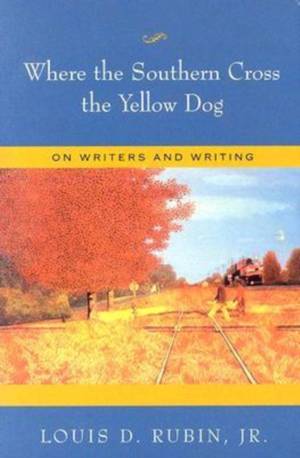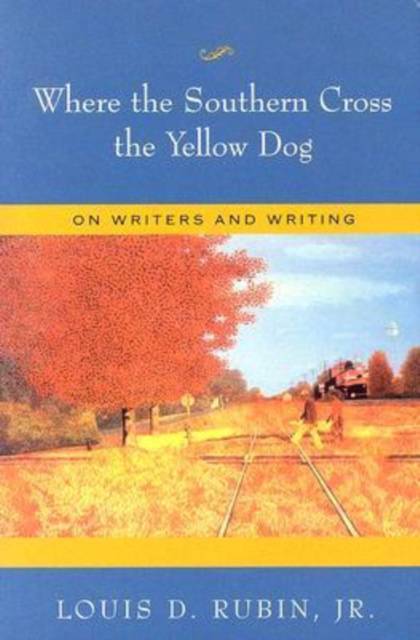
Wil je zeker zijn dat je cadeautjes op tijd onder de kerstboom liggen? Onze winkels ontvangen jou met open armen. Nu met extra openingsuren op zondag!
- Afhalen na 1 uur in een winkel met voorraad
- Gratis thuislevering in België vanaf € 30
- Ruim aanbod met 7 miljoen producten
Wil je zeker zijn dat je cadeautjes op tijd onder de kerstboom liggen? Onze winkels ontvangen jou met open armen. Nu met extra openingsuren op zondag!
- Afhalen na 1 uur in een winkel met voorraad
- Gratis thuislevering in België vanaf € 30
- Ruim aanbod met 7 miljoen producten
Zoeken
€ 57,95
+ 115 punten
Omschrijving
In Where the Southern Cross the Yellow Dog, award-winning author Louis D. Rubin, Jr., discusses writing and writers based on his own experience as a writer, editor, teacher, and publisher. Only ten years old when he wrote his first article for publication and eighty-one when he completed the preface to this book, Rubin skillfully incorporates more than seventy years of knowledge and experience into this comprehensive and highly readable work. The title essay, which involves a railroad crossing in Mississippi, a painting, a novel by Eudora Welty, and a comment on language and image by Walker Percy, is an effort by Rubin to come to grips with a problem that has plagued him for years: what is "Southern" about Southern literature, and how does that Southernness figure in the literary imagination of its practitioners? Most of his essays deal with various problems and possibilities characterizing the American literary scene today: the literary uses of memory, writer's block, the nature of place in fiction, the teaching of writers and the presence of writers on campuses, the condition of poetry today, sports writing, authorial intent in fiction, how nonfiction bolsters fiction, the parlous state of literary publishing, and other matters of cultural importance. Among the authors whose works figure in the book are Eudora Welty, William Faulkner, James Joyce, Marcel Proust, Thomas Wolfe, T. S. Eliot, Robert Frost, Flannery O'Connor, Stendhal, Mark Twain, Henry James, A. J. Liebling, Shelby Foote, William Wordsworth, Herman Melville, and Ernest Hemingway. The book concludes with a look at today's literary situation, a diagnosis of how it got where it is, and some recommendations for rescuing it, inspired in part by the author's failed attempt to buck the trend by founding Algonquin Books. Scholars and students of American literature, especially Southern literature, are sure to find much of value in these informative and inspirational essays from a dedicated and distinguished student of Southern letters.
Specificaties
Betrokkenen
- Auteur(s):
- Uitgeverij:
Inhoud
- Aantal bladzijden:
- 144
- Taal:
- Engels
Eigenschappen
- Productcode (EAN):
- 9780826216083
- Verschijningsdatum:
- 1/11/2005
- Uitvoering:
- Hardcover
- Formaat:
- Genaaid
- Afmetingen:
- 162 mm x 236 mm
- Gewicht:
- 408 g

Alleen bij Standaard Boekhandel
+ 115 punten op je klantenkaart van Standaard Boekhandel
Beoordelingen
We publiceren alleen reviews die voldoen aan de voorwaarden voor reviews. Bekijk onze voorwaarden voor reviews.











